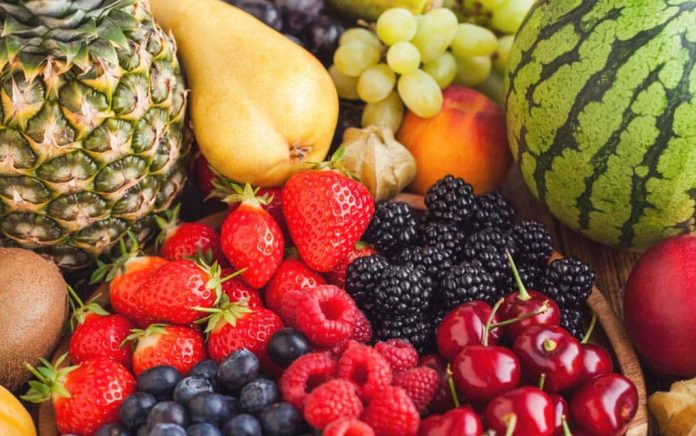
(HealthyResearch.com) – The more we learn about nutrition and health, the closer we’re forced to look at the role diet plays in chronic inflammation. Related conditions, such as diabetes, cardiovascular diseases, arthritis, joint diseases, allergies, and even chronic obstructive pulmonary disease (COPD), all are rampant in the US, where diets often include loads of inflammation-inducing foods. Whereas a poor diet can lead to all sorts of chronic conditions, and even death, the right foods can serve as a weapon against inflammation and disease. Consider adding these delicious fruits to your arsenal.
Check Out These 8 Fruits That Help Fight Inflammation.
Blueberries
Blueberries are rich in anthocyanins, powerful antioxidants that help protect against inflammation and numerous other health issues. Three different studies on mice have shown that the anthocyanins in blueberries reduce the production of pro-inflammatory cytokines, cells responsible for inflammation and pain. Their effects may extend all the way to the gut, changing a person’s health by altering the types of microbes allowed to flourish. It turns out that the types of gut bacteria that thrive on anthocyanins may also protect against systemic inflammation and insulin resistance.
Grapes
Grapes are another great source of anthocyanins and other antioxidants. Studies on men with metabolic syndrome, an inflammatory condition that can lead to type 2 diabetes and cardiovascular disease, have shown grape consumption can reduce inflammation and protect the heart. And yes — wine, in moderation, does count.
Raspberries
High in vitamin C and in anthocyanins, raspberries feature other antioxidants, as well. Eating raspberries has the same effect on certain chemical pathways as taking ibuprofen or aspirin, resulting in reduced pain and inflammation levels. That’s right, raspberries can work like medicine if you suffer from an inflammatory condition like arthritis or gout.
Cherries
If you suffer from arthritis pain or gout, cherries are an especially great choice. Sweet or tart, these tiny fruits can reduce body inflammation and lower your chances of developing inflammatory conditions like metabolic syndrome, diabetes and cardiovascular disease. As an added bonus, cherries contain melatonin, an antioxidant necessary for healthy sleep, so eating cherries may also help with insomnia.
Oranges
Oranges are packed with vitamin C and antioxidants, making them anti-inflammatory powerhouses. One study found higher consumption of vitamin C reduced levels of numerous inflammatory markers, reducing the risks of chronic diseases like heart disease, dementia, atherosclerosis, certain cancers, high cholesterol, stroke, and even cataracts. Other findings suggest that the numerous antioxidants in orange juice could protect against inflammation and related systemic effects.
Watermelons
Fun to eat and always big enough to share, watermelons are deceptively good for you. A study on rats showed the antioxidants in watermelons reduced inflammation by altering the expression of certain genes. The effects also changed the way the animals metabolized fats, lowering triglycerides and cholesterol along with inflammation levels.
Avocados
Yes, avocados are a fruit — a type of stone fruit, to be exact. And all those healthy fats they contain can protect your vascular system from the effects of inflammation and oxidative stress. They also contain numerous antioxidants that reduce inflammation and may reduce the risks of atherosclerosis, or hardening of the arteries.
Tomatoes
Considered vegetables by many culinary enthusiasts, tomatoes are technically a vine fruit, like watermelons and cucumbers. Their array of antioxidants, particularly quercetin and lycopene, offer tons of benefits, including inflammation reduction. They can also improve immune function and may protect against the sun’s damaging effects on the skin.
How many of these fruits do you eat regularly? If you suffer from inflammation or a chronic disease, consider broadening your palate and adding more of these foods to your diet. You’ll likely feel better for it, and you might even see improvements in your overall health.
~Here’s to Your Health & Safety!
Copyright 2021, HealthyResearch.com
















